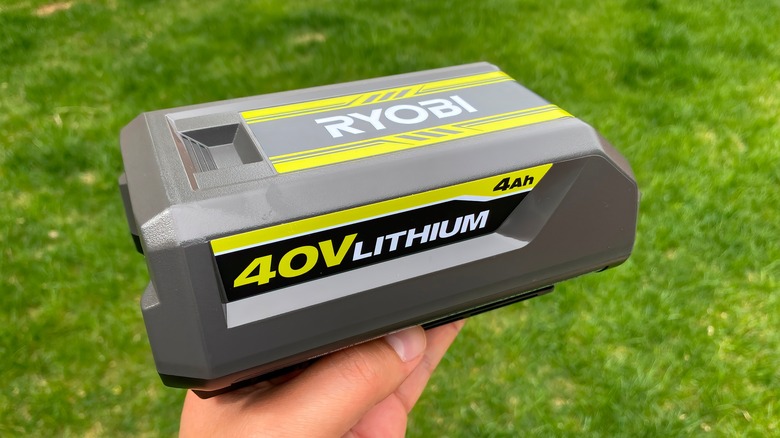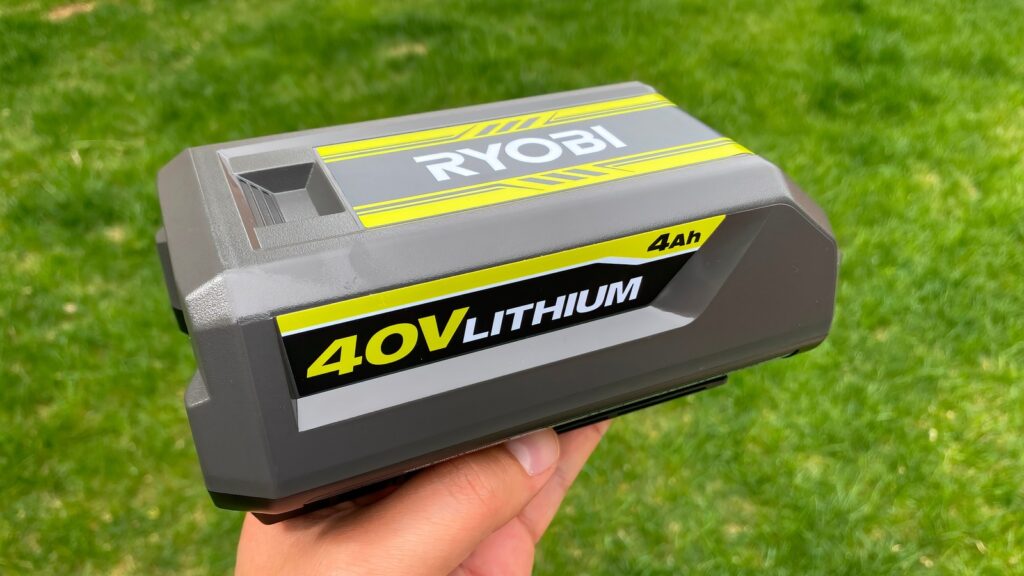
oasisamuel/Shutterstock
We may receive a commission on purchases made from links.
The realm of handheld power tools has been firmly in the court of battery power for over a decade now. After all, why constrain yourself to a power outlet or air compressor when you can get reliable levels of power in your tools by just snapping on a battery pack? All major hardware brands utilize one or more types of battery pack in their tool offerings, including Ryobi, DeWalt, Milwaukee, and more.
While battery packs are convenient, they do bring with them a particular annoyance: every hardware brand wants to have a battery ecosystem to call its own, which means you need specific battery packs to use with each brand of tool you own. This can be frustrating if you make extensive use of a particular hardware brand, but also have several tools created by another brand.
Let’s say, for example, that you primarily use Ryobi tools but needed to bust out a DeWalt implement on occasion. If all your DeWalt battery packs are drained, would you be able to snap on a Ryobi battery pack instead? The answer to that is no, you wouldn’t. But why is that the case?
Ryobi batteries can’t be used with other brands on their own
Ryobi battery packs, much like any other brand’s battery packs, are designed to work exclusively with Ryobi tools — no exceptions. It’s not just a matter of connector compatibility, though that’s certainly a factor, but it’s also a matter of physical connections.
Ryobi’s ONE+ battery packs utilize a distinctive shape, a rectangular box with a peg jutting out of the top. That peg pokes up into a tool for a hard-line connection. Tools from other brands don’t utilize this framework, so there’s no way for the battery pack to connect to them.
Granted, ONE+ isn’t the only battery framework Ryobi uses; it also deals in the bulkier 40V packs that use a more traditional slide-and-snap connection. Even if the general shape is similar, though, it still wouldn’t work — every power tool brand has its own proprietary connectors with specially sized grooves and slots. Even if a Ryobi 40V pack could slide onto a connector rail on a different tool, if the connector points aren’t exactly aligned, it won’t deliver power.
Using battery adapters
For about as long as home hardware has been a thing, handy individuals have made use of adapters to circumvent compatibility issues between brands. Batteries are no exception. Third-party companies and generic brands manufacture adapters that allow a user to connect a battery from one brand’s ecosystem to another brand’s power tools.
In the case of Ryobi batteries, there are generic battery adapters available on Amazon that facilitate a connection between them and other brands. Returning to the DeWalt example from earlier, you could utilize a Ryobi-to-DeWalt battery adapter, a boxy device with a slot on the bottom for the peg connector on a ONE+ battery and a connector rail on top to attach to a DeWalt tool.
The only catch is that battery adapters only work one way. You wouldn’t be able to use that Ryobi-to-DeWalt adapter to connect a Ryobi battery to a Milwaukee tool, for instance. To make that happen, you would need to purchase an entirely separate Ryobi-to-Milwaukee adapter. The concept is the same, but the connector rails on top of the adapter are different to facilitate a linkup to a Milwaukee tool. You would also need a separate adapter if you wanted to connect a 40V Ryobi battery pack to a different tool, such as a Dyson vacuum cleaner, again due to connector differences.
Battery adapter safety concerns
While using battery adapters to merge all your power tool ecosystems into a single, convenient mass sounds nice, there are some safety concerns you should be conscious of. First and foremost, all battery adapters are third-party products, which means they haven’t received an official seal of approval from any of the brands they connect to. In the event that your Ryobi batteries and the tools you’ve connected them to suffer some manner of power failure, that would be considered outside of both items’ proper usage, which will likely void their respective warranties. Neither Ryobi nor any other brand wants you to use products outside of their ecosystem, so if you do, it’s not really their problem.
Secondly, while battery adapters can foster a working transfer of power, it may not be an optimal one. Ryobi batteries are designed to deliver power to their respective tools in a specific way, as well as receive feedback from those tools. Using an adapter muddles the connection; power might still flow, but it will do so in an unoptimized way that could be either too weak or too strong. If you absolutely have to use a Ryobi battery with a different brand of tool via an adapter, try to keep your usage brief and low impact to lower the risk of battery burnout.
>>> Read full article>>>
Copyright for syndicated content belongs to the linked Source : SlashGear – https://www.slashgear.com/1587584/are-ryobi-batteries-compatible-other-brand-tools/
